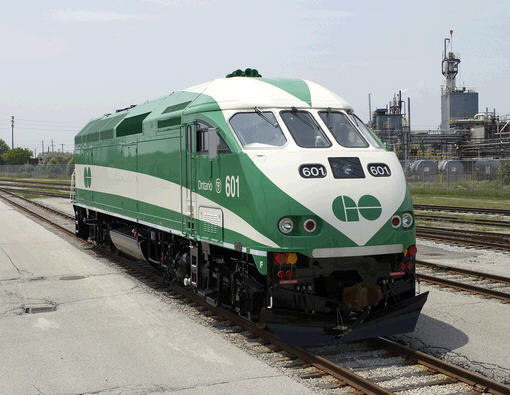The two big Canadian railway corporations have taken full advantage of the weak internal financial controls at Metrolinx:
For much of the past two decades Canadian National Railway Co. has been credited with revolutionizing the North American railroad industry.
The company’s former chief executive E. Hunter Harrison’s theory of “precision railroading” — a data-driven focus on charging customers a premium for superior on-time performance — made him an industry icon and his shareholders very happy.
But in railroading, as in life, how you get there matters.
Acting on a tip, the Southern Investigative Reporting Foundation began investigating Canadian National in the fall of 2014. Here’s what our reporting uncovered:
- For over 15 years Canadian National earned hundreds of millions of dollars in profit by marking up rail construction costs up more than 900 percent to a public-sector client.
- Canadian National regularly engaged in questionable business practices like charging internal capital maintenance and expansion projects to the same taxpayer-funded client and billing millions of dollars for work that was never done.
- A just-released auditor general investigation suggested a series of reforms that will reduce these profits.
- For years, train yard personnel, under intense pressure from management, have intentionally misreported on-time performance, helping it boost revenues by hundreds of millions of dollars.
[…]
Long before the Ontario auditor general’s office began its investigation, Canadian National was using Metrolinx as an automated teller machine, albeit one with no deposits required. Over 15 years executive teams have come and gone at Canadian National but the one constant has been the river of profit that its Toronto construction unit has been able to reliably wring from Metrolinx.
Determining how much Canadian National has billed Metrolinx over the past two decades is difficult but since 2010, adding up four separate land sales, the Lakeshore West construction discussed below and ongoing maintenance contracts it’s at least $1.1 billion, the majority of which likely went straight to operating income. In other words, Metrolinx’s long-running failure to properly scrutinize Canadian National emboldened it to charge prices so high that many of the construction and maintenance contracts amounted to almost pure profit.
The most audacious episode occurred from 2004 to 2008 when Canadian National’s construction managers developed a billing scheme that reaped hundreds of millions of dollars in profits and benefits by wildly inflating the cost of construction, according to documents obtained by the Southern Investigative Reporting Foundation and attached to ongoing litigation.
The project involved a track expansion project that Canadian National performed for Metrolinx’s Lakeshore West line, on a route that stretched about 40 miles from Hamilton, Ontario, to Toronto’s Union Station. The work was completed in 2012.
Windfall profits and bonus payouts weren’t the half of it. In numerous instances Canadian National billed Metrolinx for work that Canadian National did for its own capital maintenance and expansion projects, saving itself many millions of dollars in expenses.
From 2004 to 2008, Canadian National did track construction work for Metrolinx on a 4.5-mile stretch between the Burlington and Hamilton stations, referred to by Canadian National as Lakeshore West/West. On a separate stretch of the same track in late 2009, crews began adding track to the 9.1-mile stretch from the Port Credit station to Kerr Street, or the Lakeshore West/East line. (The Ontario auditor general’s annual report discussed an unnamed 9-mile track extension that cost $95 million to construct “on the Lakeshore West corridor” but did not identify the project’s location or its date of completion.)
The Lakeshore West/West project’s cost is unclear.
Based on this email, Metrolinx had originally approved a construction price tag of $45 million, but in short order the project’s chief engineer Daryl Barnett, in a bid to reduce costs, noted the price tag had quickly ballooned past $70 million. Metrolinx’s spokeswoman Aikins did not answer repeated questions on the matter but the Southern Investigative Reporting Foundation obtained an April 2015 internal audit Metrolinx conducted at the auditor general’s request that put the final tab for Canadian National’s 2004 to 2008 work on that stretch at “over $200 million.”

GO Transit operates bus and rail service in the Greater Toronto Area as part of Metrolinx



